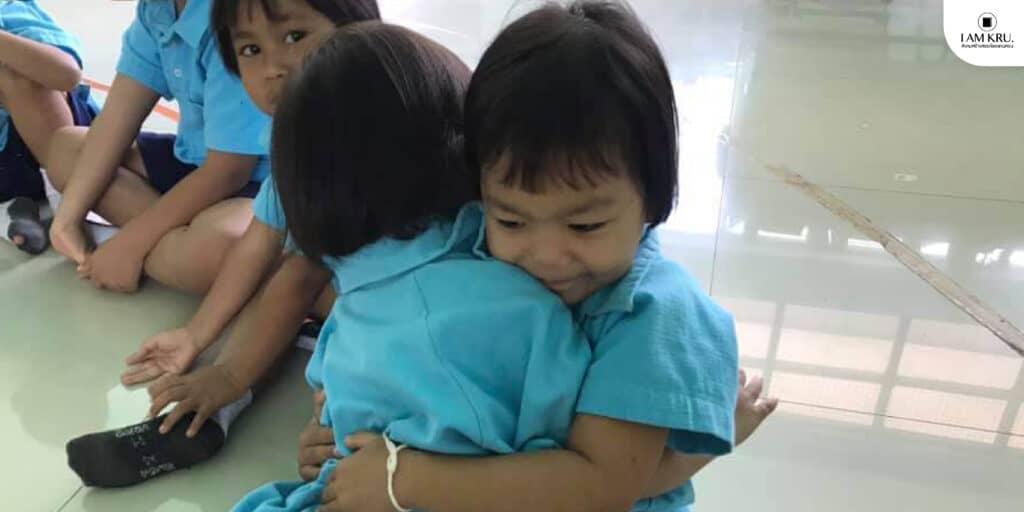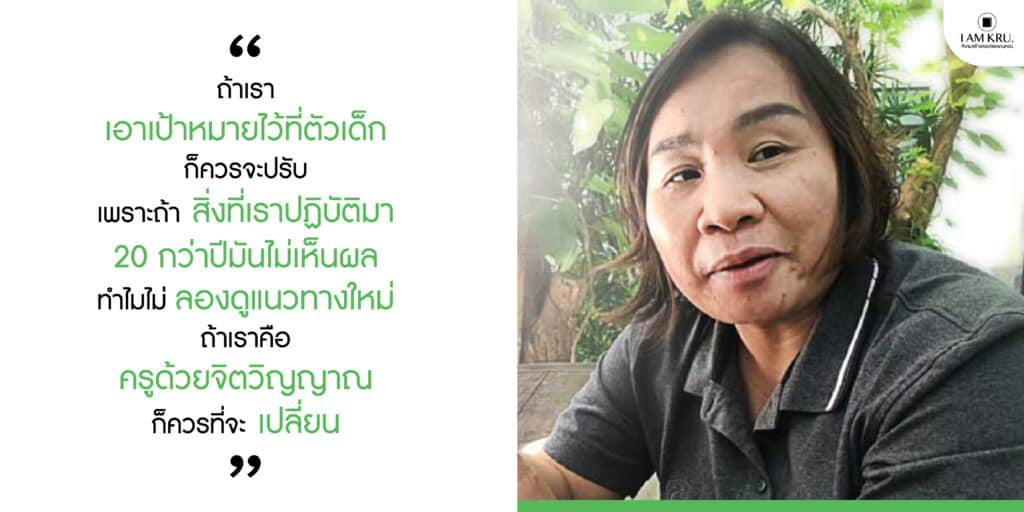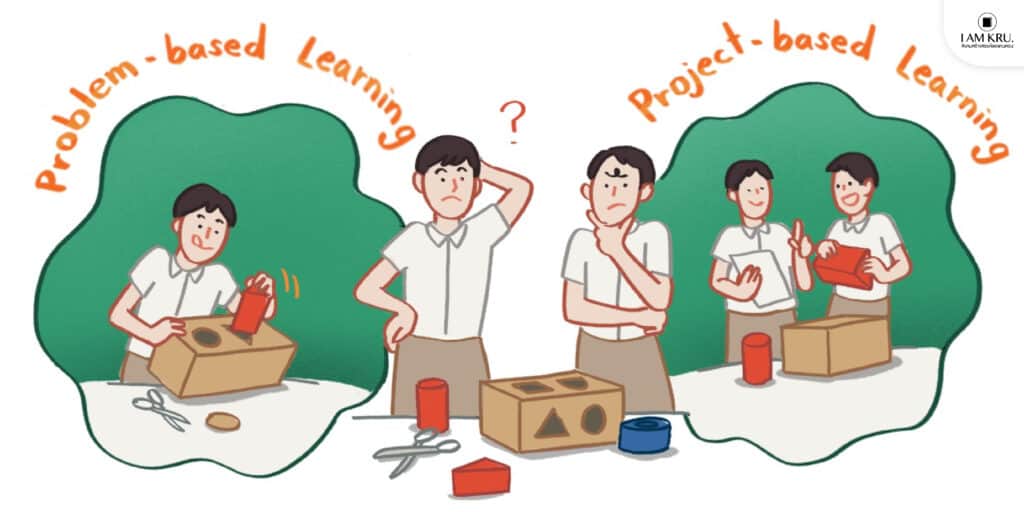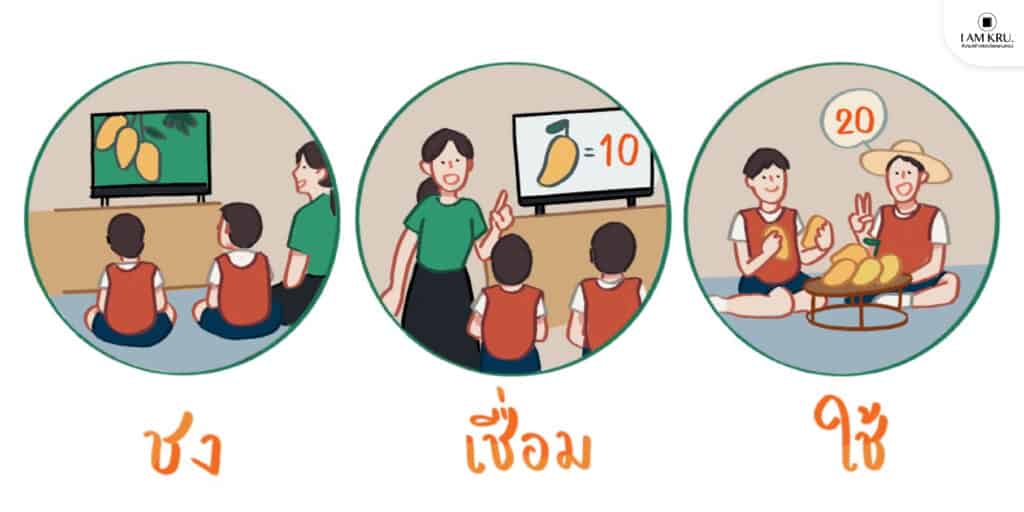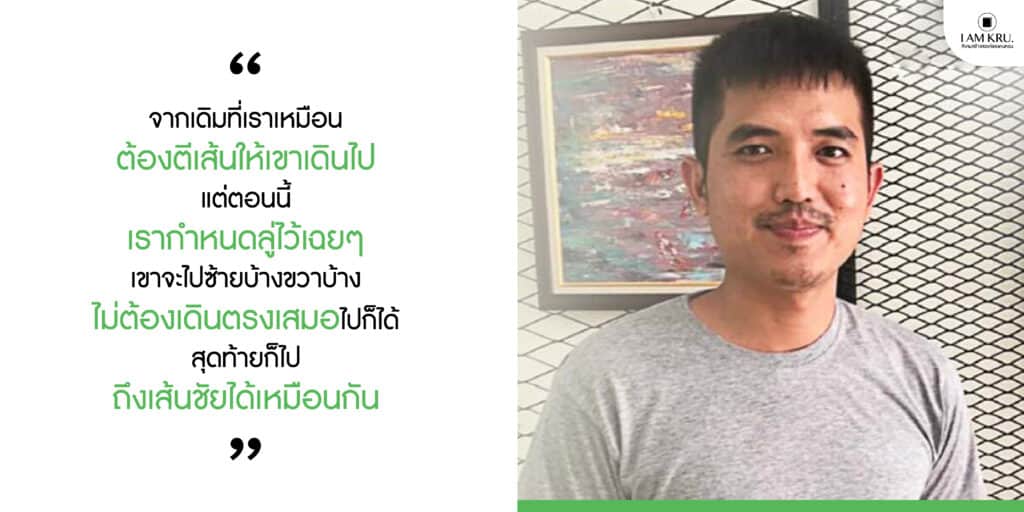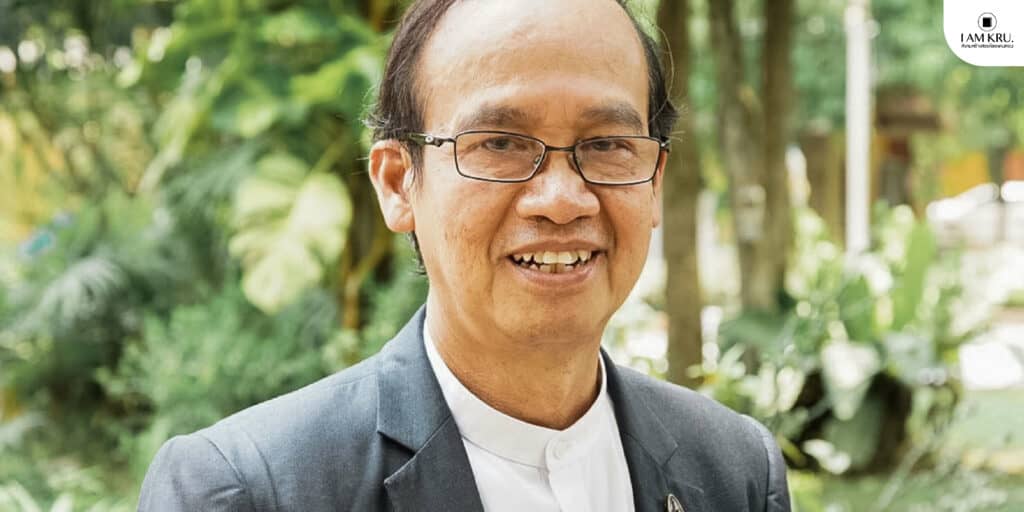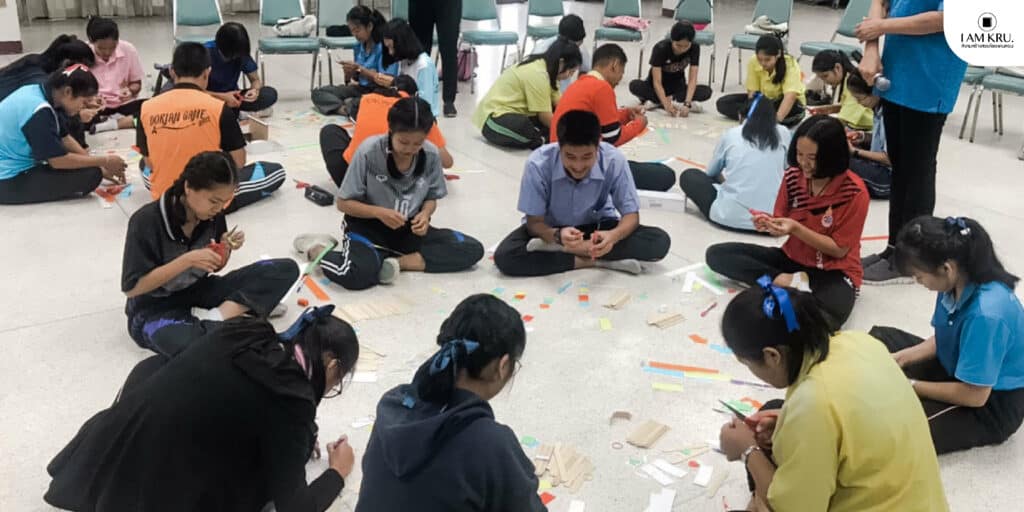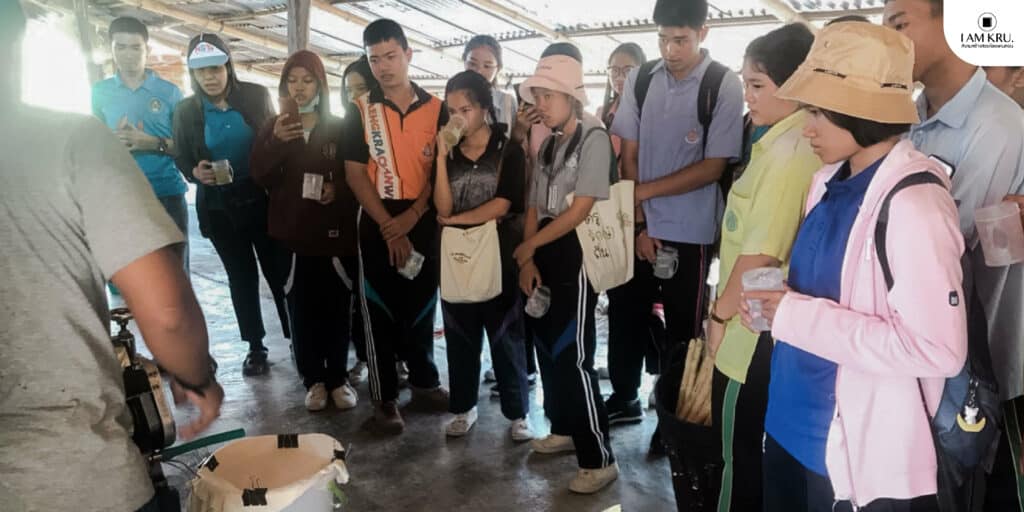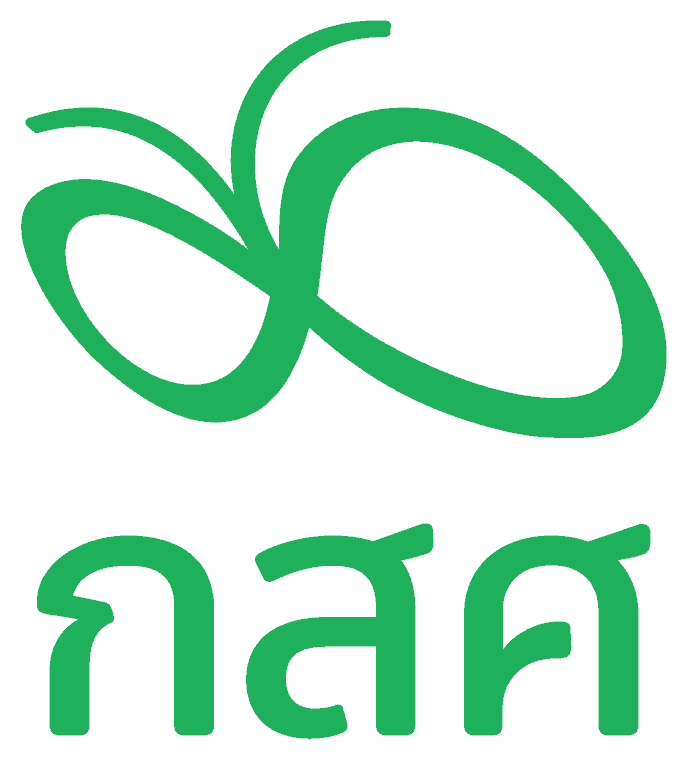“We want the novices to be able to develop themselves and be passionate about their profession. Equitable Education Fund (EEF) offers consecutive support to novices who decide to proceed with middle school or high school before leaving the monkhood to advance on Vocational Certificate or High Vocational Certificate,”
stated Prof. Phongphan Ek-arwut, Head of Phra Pariyat Dharma Project
Equitable Education Fund (EEF)
Phra Pariyatitham School, Department of General Education, was established to educate monks and novices based on the curriculum designed by the Ministry of Education. It is considered as an alternative access to education of disadvantaged children and youth to complete compulsory education, obtain vocational training, and learn the doctrines of Buddhism which is the core in producing decent citizens out of monks and novices in the future.
The Phra Pariyat Dharma Project, under supervision of EEF, was therefore established to manage educational processes and paths, and provide quality education and knowledge toward career interests for monks and novices. The fact that the novices have the opportunity to grow up in various paths is coherent with curriculum modification of Phra Pariyatitham School by increasing academic quality. Moreover, there is a plan to conduct research collaboratively in order to develop the body of knowledge and tools to support monks and novices who are studying.
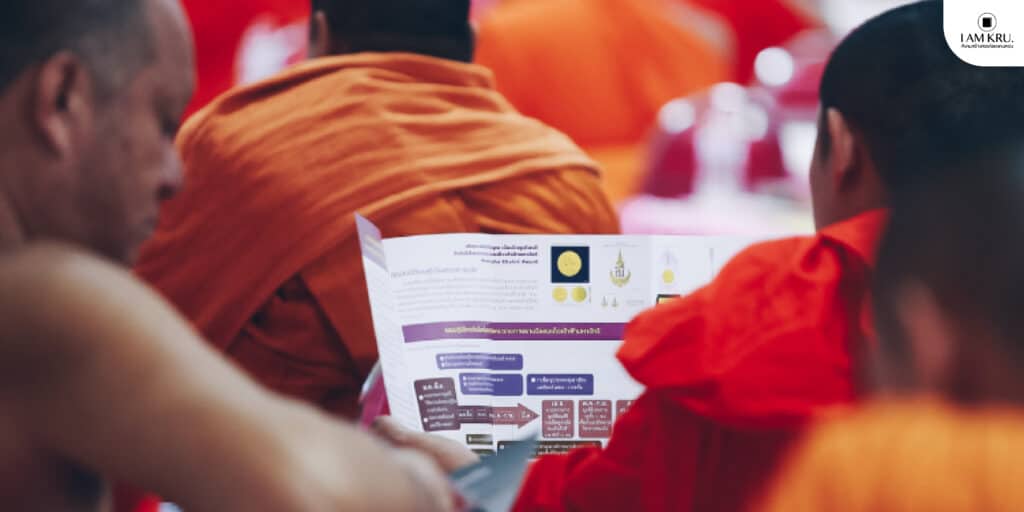
Reduce inequality in Phra Pariyatitham School
Prof. Phongphan Ek-arwut, Head of Phra Pariyat Dharma Project claimed that the role of EEF is to provide aid to youth and disadvantaged groups, especially on the matter of inequality regarding access to education and self-improvement. Correspondingly, the novices of Phra Pariyatitham School belong to low-income families. It, as a result, leads to the difficulty in accessing compulsory education among general schools. For that reason, EEF participated in such development and assistance with the aim to improve learning and teaching methods in Grade 7- 12.
“Some households are so short of money that they choose to have their children ordained in order to study in Phra Pariyatitham School, Department of General Education. In the past, there was no explicit form of educational management. Some schools implement a more substantial curriculum than other ordinary schools as novices have to take courses concerning 8 learning subjects, apart from Dharma, Pali and Buddhism studies.
We want to develop the novices who are a group of disadvantaged youth to have professional knowledge, and to draw their interests to vocational learning that can be practical to future careers.”
Educational goals of Phra Pariyatitham School
Educational development in Phra Pariyatitham School significantly depends upon the desire for the novices to complete compulsory education which is middle school. Additionally, EEF has prepared higher education in terms of Vocational Certificate and High Vocational Certificate for them.
“The ultimate goal is we want the novice students to be able to develop themselves and be passionate about their profession. EEF offers consecutive support to novices who decide to proceed with middle school or high school before leaving the monkhood to advance on Vocational Certificate or High Vocational Certificate. For those who do not wish to continue the ordination after completing compulsory education, when they return home for family’s work, they have the knowledge with them such as agriculture to make a living,”
stated Prof. Phongphan.
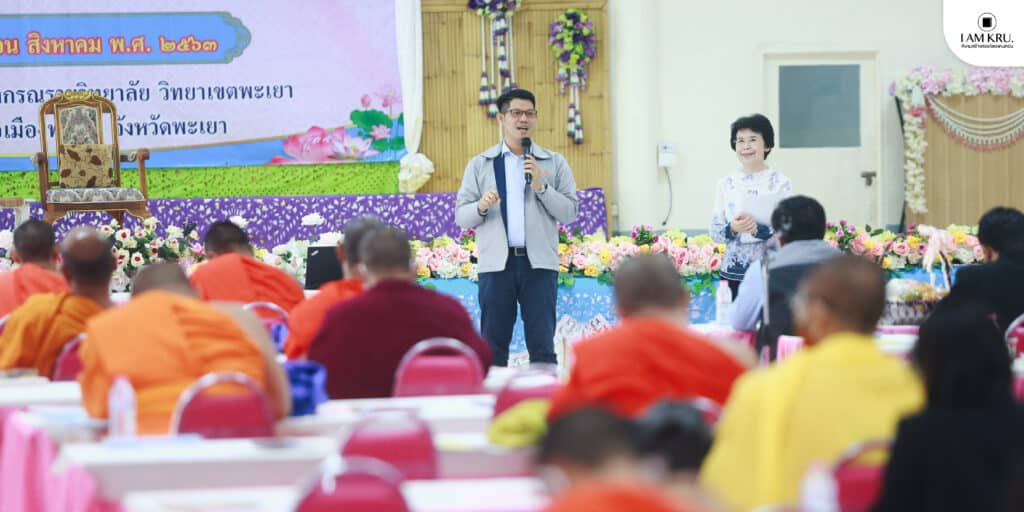
Concentrate on “teacher development ” to pass on knowledge professionally
Phra Pariyat Dharma Project, in terms of educational development, begins with “teacher development” of approximately 50 exemplary schools. The program encompasses development of 3 main bodies of knowledge with the aim for exemplary teachers to educate monks and novices efficiently as follows 1. Vocational skills development based on sufficiency economy philosophy 2. Active Learning: a learning and teaching method that focuses on practices and thought processes toward the actions 3. Knowledge exchange according to the Professional Learning Community (PLC).
“We now have ideal schools that are the main role models of development in provinces which are Chiang Rai, Phayao, Phrae, Nan, Lampang, and Sisaket. There are a number of activities as designed in the curriculum. For instance, farming. The novices will learn a new plan of vocational agriculture in which they are allowed to practice, make a record of the project and collect the knowledge from both research and practice. This is advantageous for occupational purposes. Another example displays in a village called Wiang Kalong, Chiang Rai province where there are makings of celadon tiles and potteries, and tea plantations. These are primary occupations in the community that we have helped develop for its sustainability,”
stated Prof. Phongphan.
Because the major problem of the novices is encountering higher inequality in education compared to students in general education schools. Prof. Phongphan and the Phra Pariyat Dharma Project team then hasten to develop this program constantly, intending to uplift various skills among monks and novices of Phra Pariyatitham School to be equivalent to students in general schools. The novices who desire to proceed with professional studies will have an equitable degree as that of the vocational college by which they can study Academics and Buddhology simultaneously.
Prof. Phongphan concluded,
“we want to encourage the children who come to ordain for knowledge. Besides education and ordination, those children who come from remote areas are required to adhere to the Ten Precepts. They will at least be disciplined with virtues and Buddhism which is a way of producing decent citizens at a young age.”
The Phra Pariyat Dharma Project is supported by several sections in terms of teacher development and the facility of vocational training. EEF also advocates creating educational opportunities for individuals with quite a number of scholarships to be granted to monks and novices. This is regarded as a fulfillment and a way of lightening the burden of students and their families. Despite the fact that the fund is not a complete subsidy, it initiates the thought of continuation in higher education in students, especially the novices who may grow up with different career paths. The program is comparable to a training ground before the novices press on their journey.
